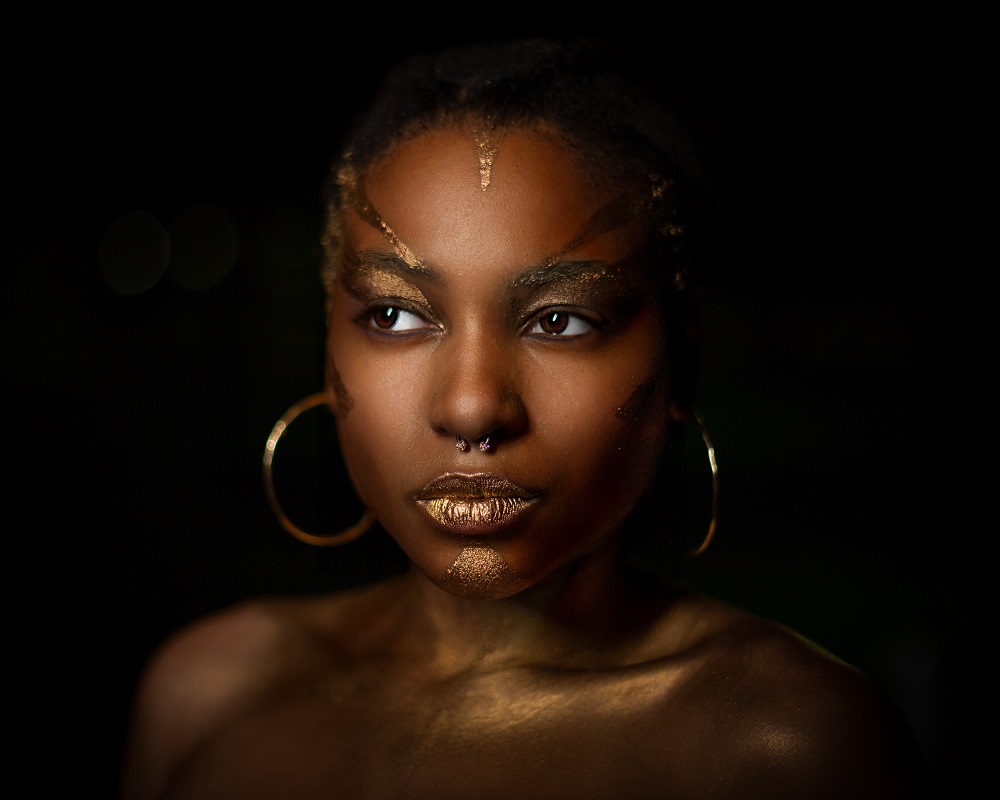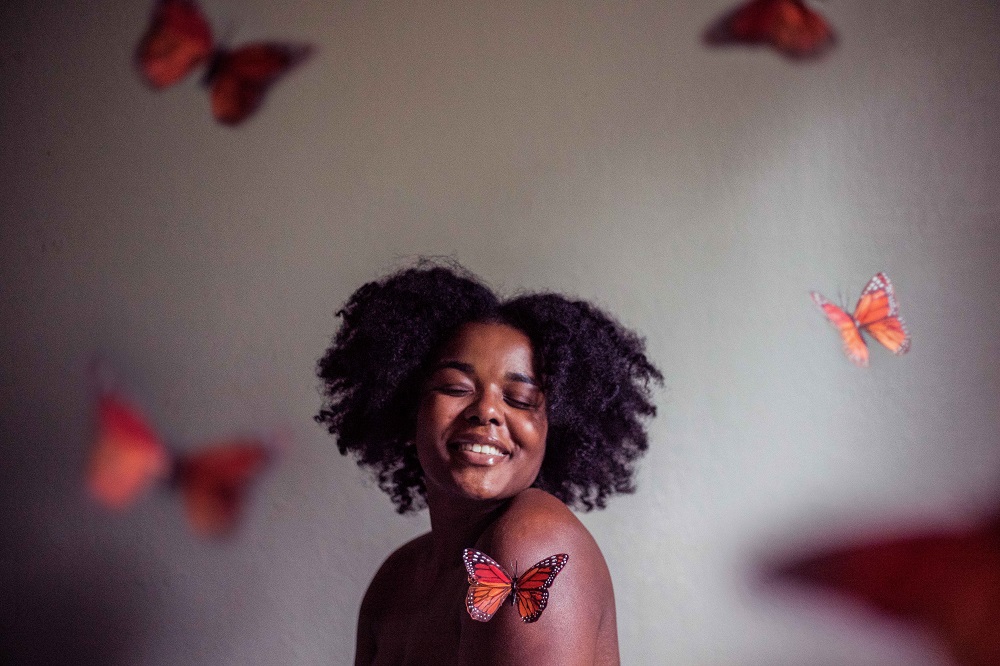By Priscilla Wiredu
Posted on January 28, 2022
Western society believes that its societal standards are progressive in terms of diversity and acceptance amongst groups. That is why when we hear the term skin bleaching – which is the practice of using treatments to physically lighten one’s skin tone, we think it is an issue in developing or second world countries where colourism is more rampant. The hard truth is, skin bleaching is a dangerous practice that occurs everywhere in the world, including North America.
Skin bleaching or lightening has more than just physical effects, it also hampers one’s self-confidence and self-worth. Senegalese model Khoudia Diop once claimed that she hated her dark skin tone as it was the reason she was excluded from some jobs during her career. Fortunately, as she got older, she was able to turn her dark skin into a symbol of pride and self-love, a decision which she owes to her mother, the only woman in her family who never bleached.
The Origins of Skin Bleaching
The first discovery of skin bleaching dates back to 4000 BC, in Ancient Egypt. There has been a long recorded history of skin bleaching in North Africa. During the peak of slavery, European slave masters noticed their skin was affected by long hours in the sun, and produced various methods to lighten their skin tones. In Nigeria, skin bleaching can be traced back to when lighter-skinned individuals appeared as the face of the country. The slave trade could be said to have been the driving force in introducing skin bleaching practices as lighter skin seemed to be preferred as it reflected a lifestyle of leisure and not working long hard hours in the sun.

White or lightened skin is an important element in many cultures worldwide, and a defining staple of female beauty, mostly in parts of Sub-Saharan Africa and Asian countries. In Mali, 25 percent of the population practice skin bleaching; while in Senegal, 52 percent practice this. For dark-skinned African women, beautification has gone from altering certain body parts to changing the entire body through making the skin lighter. Skin bleaching can have permanent or temporary effects, depending on the regimens and products used.
Why Do Women Bleach?
Reasons for wanting lighter skin depend on the individual. Multiple studies show that women prefer to lighten their skin because light skin is a sign of higher status, privilege and beauty. Light skin opens more opportunities for attracting high-status mates, or in other cases, skin bleaching is used in prostitution to attract men. This implies that men view white women as more attractive than Black women.
This is even prevalent in the workplace in North America; employers sometimes prefer white or light-skinned women to work for them as opposed to darker-skinned women; a nod back to the mentality of making sure the enslaved women who served in the house had lighter skin tones. A 2007 study conducted by Youth Crime Watch Nigeria CEO Peter Adeleye explains that people who are lighter-skinned have more opportunities in education, income and spousal status.
Aside from the promises of spousal, financial, and social status income, women also bleach as a means of establishing respectful relationships with others, erasing racial discrimination, battling low self-esteem and superiority complexes, and achieving freedom from racial stereotypes, and promoting fashion and beauty. Young women believe skin bleaching helps them get desired male partners as they see white skin as attractive and appealing. Unmarried women are not the only ones engaging in bleaching, married women also engage in skin bleaching with a strong belief that doing so will help them sustain their marriages.
Media influence on skin bleaching
The media plays a pivotal role in promoting skin bleaching to achieve beauty. The skin-lightening propaganda perpetrated by the media affects the psyche, pressuring consumers into finding the best creams to help achieve lighter skin tones. A study has shown the target audience for skin bleaching has moved from adults to young teen girls.
Social media platforms such as Facebook and Twitter run cosmetic ads that sell lightening makeup, hair enhancing shampoos, anti-wrinkle creams, skin-firming lotions and creams that reduce dark spots to even out the skin tone.
In the entertainment industry, music videos and Black female entertainers, particularly singers, have been seen to lighten their skin as their careers progress. They have a lighter skin tone to appeal to and keep their fanbases. In the early 2000s, evidence of this was brought to attention when female celebrities such as Lil Kim and Beyoncé had their skin tone lightened on magazine covers, with Lil Kim actually going under various treatments and surgeries to appear lighter-skinned and more westernized.
Not only is light skin idolized in the media, but dark skin is also demonized and insidiously correlated with ugliness and evil. In Black films from the ‘80s and ‘90s, dark-skinned Black characters were seen as gangsters, drug dealers or abusive individuals, while light-skinned characters were shown as the heroes or the ones with bright futures. Possibly the most famous depiction of this in real life was the 1994 O.J. Simpson murder trial, where TIME magazine depicted Simpson’s mugshot and the filters contrasted to make him look darker as if his dark skin tone correlated with his criminality. Race was the defining topic of the trial, and TIME’s controversial magazine cover became a standpoint in realizing how the media equated Black peoples’ skin tones with criminal behaviour.
The Health Risks of Skin Bleaching
The pushing of beauty creams by most skin-toning adverts on social media only shows the positive aspects of skin bleaching, neglecting the negative, which leaves consumers ignorant of the long-term health effects skin lightening can have on one’s body. Continuous use of skin bleaching can cause forms of skin cancer or acne, causing the skin to lose elasticity, making it decay and even smell.
Embracing Dark Skin

More and more Black women are rejecting skin bleaching products by creating positive images of dark skin women in media, cosmetics, and other forms. Singer Rihanna launched Fenty Beauty, a makeup line catered to Black women with foundation colours exclusive to dark skin Black women as a means of showing you do not need to lighten your skin to wear makeup. Dark-skinned celebrities such as Lupita Nyong’o and Viola Davis released childrens’ books on dark skin positivity to help young Black girls love their skin and avoid bleaching. By doing so, the images teach dark-skinned youth to embrace their tone and to not conform to Western beauty ideals, preserving their culture and pride.
The idea of embracing dark skin is a wonderful journey of self-acceptance; one’s skin tone should not measure their beauty or self-esteem. With more inclusive campaigns that advocate dark skin Black women, skin bleaching will hopefully become a thing of the past.
Priscilla Wiredu is a writer for this year’s Black Voice project. An alumni of York University, she graduated with Honors where she studied Social Sciences. She then went on to get an Ontario Graduate certificate in Creative Writing from the Humber School for Writers, and a college certificate in Legal Office Administration at Seneca College. She is currently studying for the LSAT in hopes of going to law school. Her main goal as a Black Voices writer is to ensure Black issues and Black Pride are enunciated through her works.

